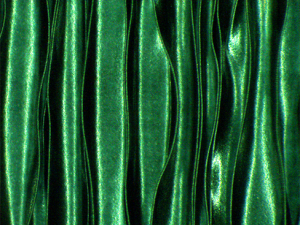
The work is designed to impact applications in wearable technology. Malleable energy devices will help existing wearable technologies such as smart watches become more flexible, comfortable, and reliable. Changyong Cao, director of MSU’s Soft Machines and Electronics Laboratory, sees other opportunities for the technology: for example, smart textiles that monitor athletes’ vital signs during games, electronic skins to restore some sense of touch for people using prosthetics, and smart implants that can track patient health.
To power these devices, Cao and his colleagues are creating harvesters, electronic devices that convert the energy of motion into electricity. A key ingredient in those energy-harvesting circuits is a component known as a supercapacitor, which uses electrochemistry to charge and discharge like batteries, but much faster. This work was funded in part by USDA’s National Institute of Food and Agriculture.
For more information, read the MSU Today article.
Topic
U.S. States and Territories
Michigan

